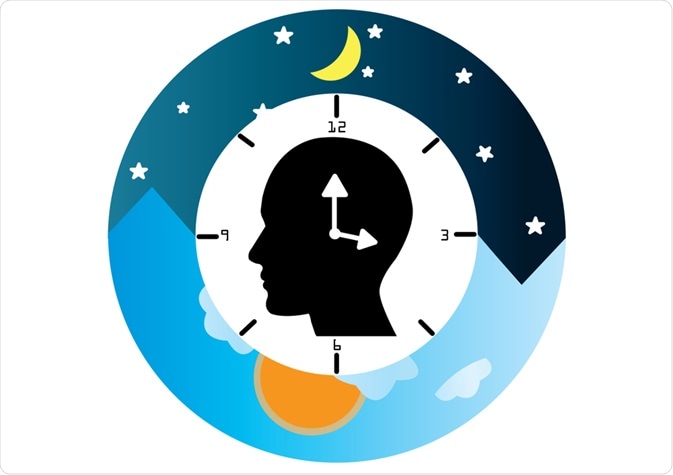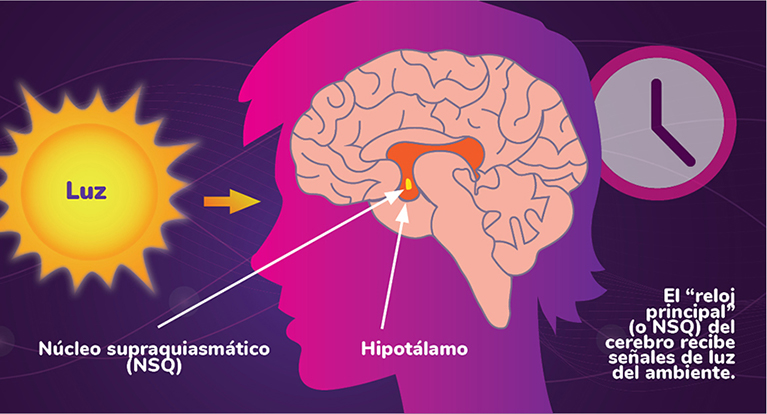Los ritmos circadianos.
¿Qué son los ritmos circadianos?
Estos son cambios físicos, mentales y conductuales que siguen un ciclo de 24 horas y los cuales responden, principalmente, a la luz y la oscuridad, y afectan a la mayoría de los seres vivos, incluidos los animales, las plantas y los microbios, siendo parte de un proceso natural.
Los encargados de regular los ritmos circadianos son los relojes biológicos los cuales son los dispositivos de tiempo naturales de un organismo y están compuestos de proteínas que interactúan con las células de todo el cuerpo; el principal reloj biológico es el Núcleo Supraquiasmático (NSQ) y se encuentra en el cerebro ubicado en el hipotálamo.
El NSQ controla la producción de melatonina, una hormona que produce somnolencia, éste recibe información sobre la luz entrante de los nervios ópticos, los cuales la trasmiten desde los ojos hasta el cerebro y cuando hay menos luz, el NSQ le indica al cerebro que elabore más melatonina para producir sueño.
Influencia de los ritmos circadianos.
Los ritmos circadianos pueden influir en las funciones importantes del cuerpo, como:
- En la liberación de hormonas,
- En los hábitos alimentarios y digestión,
- Y en la temperatura corporal.
Factores que cambian los ritmos circadianos.
Los cambios en el cuerpo y los factores ambientales pueden hacer que los ritmos circadianos y el ciclo natural luz-oscuridad no estén sincronizados; por ejemplo:
- Las mutaciones o los cambios en ciertos genes pueden afectar los relojes biológicos.
- El desajuste horario o el trabajo por turnos cambia el ciclo luz-oscuridad.
- La luz de los dispositivos electrónicos en la noche puede confundir los relojes biológicos.
Estos cambios pueden causar trastornos del sueño y producir otras afecciones médicas crónicas, como obesidad, diabetes, depresión, trastorno bipolar y trastorno afectivo estacional.
La comprensión y estudio de los ritmos circadianos o relojes biológicos son de gran importancia pues se conoce mejor el cuerpo humano y ayuda a tener mejores tratamientos para las afecciones médicas crónicas.




Excelente informacion. Gracias por compartir.
ResponderEliminar